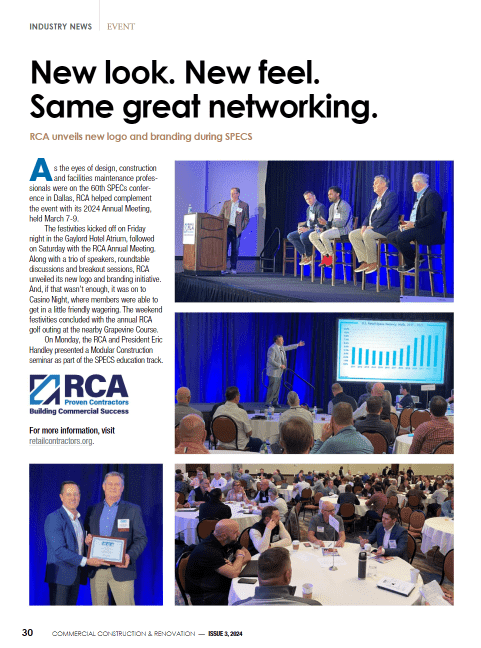
Congratulations! You have finally found your dream house. The delight of buying a new home is exhilarating. Besides, purchasing a brand new property also has an emotional value. No dealing with someone else’s mistakes or wear and tear. People give countless reasons to prefer a new house over a used one. They think purchasing a new one will save them money. But even after careful selection and inspection, it is possible to find issues in your new house.
Therefore, finding issues in the new house is common; more serious is neglecting them till they group together and snowball, leading to costly repairs. On average, a US household spends more than $8,305 on home improvements and $3,192 on home maintenance. So, whether you are acquiring a new house or a used one, be ready to pay for some hidden issues. Here is a list of some issues you could face.
1. Tackling the hard water issue
Countless US households in various cities, including Gilbert, Arizona, and Los Angeles, lament the issue of hard water, which is neither suitable for drinking nor cooking or washing. Hard water also leaves ugly stains and soap scum on the floor. Furthermore, it can make your skin dry, dull, and itchy and make your laundry lose its shine and color.
Moreover, hard water can corrode your plumbing and decrease the efficiency of water-using electronics. Using hard water in the house is not only a hassle for its unpleasant effects, but it can also cost you extra money in the form of repairs and household cleaning supplies.
Hard water issue arises due to the excessive quantity of minerals such as calcium and magnesium in the water. Without the best water softener systems, using tap water can become next to impossible. Check with your nearest water softener service providers to tackle the issue.
2. Absence of necessities
Many builders focus more on a home’s aesthetics to woo their clients, alluring them into buying the property. But to your chagrin, you realize the absence of many necessities after living in the house. You may feel the absence of landscaping, CCTVs and LCD intercoms, Safety grills, window coverings, and much more. But it is often too late before you realize it.
Adding each of these missing items means incurring extra expenses above and beyond the amount paid to the seller of the house. Therefore, before finalizing the purchase, consider all the factors that you deem necessary and must be present in the house. Also, in case of their absence, negotiate the price of the home accordingly. If the seller disagrees, it is better to see a new house laced with all the essentials.
3. Ensure availability of safe drinking water
Hard water is not the only water-related issue you might face in your house. Ensuring the supply of safe and clean drinking water is a priority too. Unclean and unsafe drinking are prevailing reasons for causing diseases such as diarrhea, typhoid, polio, dysentery, hepatitis A, etc. Worldwide, 60% of diarrhea-caused deaths are related to unsafe drinking water. Therefore, having access to safe drinking water is a must for keeping you and your family safe.
Potential water issues include the smell of rotten eggs and sulfur—an indicator of the presence of hydrogen sulfide. The taste and smell of something metallic indicate the presence of mercury, copper, manganese, and zinc.
However, you must note that you cannot taste every contaminant present in the water; some need to be tested in a laboratory. Therefore, get your drinking water tested to ensure its suitability for drinking. In some situations, it also means spending more money to install a water filtration system— which is not cheap either.
4. Shrinkage cracks in the concrete
After a while, it is pretty common to see shrinkage cracks appearing in the concrete. It happens due to improper mixing of concrete with high water content. These cracks damage the aesthetics of your house; plus, they provide an entry point for rainwater to seep into the walls. In winter, when water freezes in the crevice, the cracks widen further. New homeowners should immediately seal these cracks when found. The easiest way to repair the shrinkage cracks is to brush dry cement powder over them. The residual water in the gaps can activate the cement while the powder fills the cracks.
5. Improper installation of wooden flooring
Improper installation of wooden flooring can be disastrous for new homeowners. Gaps among them and improper adhesion provide a haven for water. Wooden floorings also disengage due to fluctuations in temperature and humidity.
This issue is more prevalent in areas with high humidity fluctuation. Often the actual reason for such a happening is the failure of the builder to let the wood flooring acclimatize with the environment before installation. Constructors often have a tight and busy schedule; hence they do not wait to give the material ample time to acclimate to the conditions. Accordingly, the problem surfaces after the new owners move into the house. Treatment of such a floor depends on the severity of the damage. If it is minor, you might be able to live with it. Otherwise, you will have to contact the contractor who worked on the floor.
6. Improper painting
One of the prevailing issues with a new home is the absence of finesse in paints on the walls. Often, the paint is not allowed to dry out, or proper layering is overlooked. As a result, once the paint dries down completely, it looks patchy and poorly done. This issue might not be present in the whole house. Instead, you will find it in some parts of the house, which buyers tend to overlook during an inspection. Some areas to watch out for this problem include basements, closets, road-facing walls, and elevated areas. If the paint looks too ugly, you may want to repaint the area by calling a professional or DIYing yourself.
7. Dirty drainage system
When the house is under construction, the drainage system and the pipes get clogged with cement, and other materials workers do not pay attention to. At the time of purchase, you cannot possibly know about it. But you surely do, after moving into the new house. Most homeowners face the issue in their bathrooms and kitchen. In severe cases, homeowners need to repair the drainage systems or change the plumbing in that area.
Conclusion
Homeowners buy a new house in anticipation of not witnessing problems prevailing in old homes. You need to be vigilant and thoroughly inspect the house before investing all your savings. However, some problems might not be under a home seller’s control, such as hard water. You can take care of it by hiring professionals.







 The 2024 virtual Men’s Round Table will be held Q4, 2024, date TBD.
The 2024 virtual Men’s Round Table will be held Q4, 2024, date TBD.











